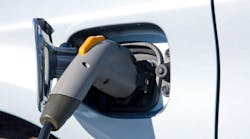The nonprofit Consumer Energy Alliance (CEA) coalition, comprised of businesses, state officials, and other groups, is launching a broad multi-state campaign to head off Congressional efforts to establish a national low-carbon fuel standard (LCFS) as part of a larger energy bill that's partly designed to steeply reduce greenhouse-gas emissions.
Section 121 of the Waxman-Markey Energy bill being marked up by Rep. Henry Waxman (D-CA), chairman of the Committee on Energy and Commerce in the U.S. House of Representatives, calls for an LCFS to combat climate change by restricting the development of specific sources of petroleum fuels, namely tar sand deposits in the northern U.S. and Canada.
But Michael Whatley, CEA vp, told reporters in a conference call that such restrictions would actually lead to higher petroleum imports from non-North American sources, specifically the Middle East, which he argued would significantly raise fuel prices yet do nothing to lower emissions.
“In any form, a low carbon fuel standard would represent a major blow to America's economic health and strategic position,” he said. “That's because the energy we import daily from friends like Canada would essentially be prohibited from crossing our border. If these abundant resources are cut off, our dependence on unstable regions of the world would skyrocket, and so would the price American consumers pay at the pump.”
Gov. Dave Freudenthal (D-WY) is also fighting the move to create an LCFS, largely because he feels such a standard would substantially increase crude oil refinery costs for domestic producers.
“The draft climate bill proposes to make the five small business refiners in my state responsible for all consumer carbon emissions for fuel they supply,” he wrote in an open letter to Chairman Waxman.
“It appears that each year, cap and trade [rules] would require these small refiners to pay hundreds of millions of dollars to cover the carbon use of several million consumers,” Freudenthal said. “The bill provides no guarantee that small refiners would recover these carbon costs. If enacted as written, the new energy policy for much of the interior West would be to load all consumer, commerce, agriculture, industry and military carbon emissions from transportation fuel on the backs of a few small processors of crude oil.”
He added that the addition of an LCFS would suggest, on its face, that cap and trade may not work as intended.
“Its inclusion in the bill implies that consumers will not behave the way Congress intends, so a more forceful command and control measure is needed,” the governor stressed. “In truth, if Congress enacts binding measures to cap and reduce carbon emissions, coupled with the renewable fuel standard that already reduces carbon in transportation fuel, it is hard to see reason or merit for the LCFS. I strongly believe these combined measures overload the packhorse.”


